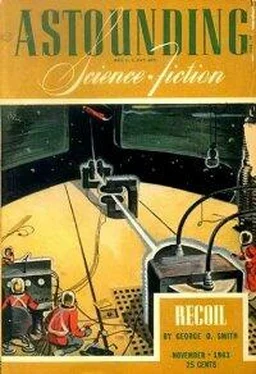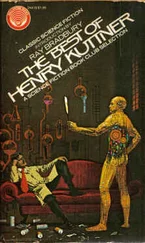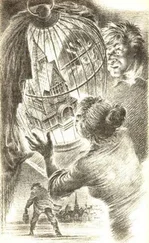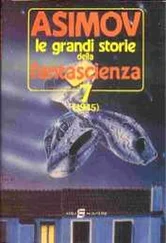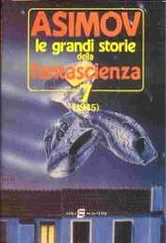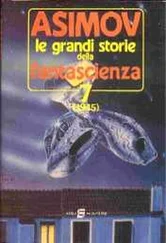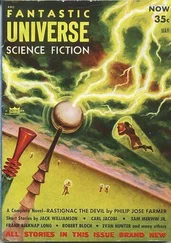Henry Kuttner - Gallegher Plus
Здесь есть возможность читать онлайн «Henry Kuttner - Gallegher Plus» весь текст электронной книги совершенно бесплатно (целиком полную версию без сокращений). В некоторых случаях можно слушать аудио, скачать через торрент в формате fb2 и присутствует краткое содержание. Год выпуска: 1943, Издательство: Street & Smith Publications, Inc., Жанр: Юмористическая фантастика, на английском языке. Описание произведения, (предисловие) а так же отзывы посетителей доступны на портале библиотеки ЛибКат.
- Название:Gallegher Plus
- Автор:
- Издательство:Street & Smith Publications, Inc.
- Жанр:
- Год:1943
- ISBN:нет данных
- Рейтинг книги:5 / 5. Голосов: 1
-
Избранное:Добавить в избранное
- Отзывы:
-
Ваша оценка:
- 100
- 1
- 2
- 3
- 4
- 5
Gallegher Plus: краткое содержание, описание и аннотация
Предлагаем к чтению аннотацию, описание, краткое содержание или предисловие (зависит от того, что написал сам автор книги «Gallegher Plus»). Если вы не нашли необходимую информацию о книге — напишите в комментариях, мы постараемся отыскать её.
Gallegher Plus — читать онлайн бесплатно полную книгу (весь текст) целиком
Ниже представлен текст книги, разбитый по страницам. Система сохранения места последней прочитанной страницы, позволяет с удобством читать онлайн бесплатно книгу «Gallegher Plus», без необходимости каждый раз заново искать на чём Вы остановились. Поставьте закладку, и сможете в любой момент перейти на страницу, на которой закончили чтение.
Интервал:
Закладка:
“Tchwuk,” Gallegher said. “Uh—”
“Got it there? I’m coming right down to see it.”
“Wait! Maybe you’d better let me add a few touches—”
“All I want is the idea,” Hopper said. “If that’s satisfactory, the rest is easy. I’ll call Trench and have him quash that summons. See you soon.”
He blanked out.
Gallegher screamed for beer. “And a razor,” he added, as Narcissus padded out of the room. “I want to cut my throat.”
“Why?” the robot asked.
“Just to amuse you, why else? Get that beer.”
Narcissus brought a plastibulb. “I don’t understand why you’re so upset,” he remarked. “Why don’t you lose yourself in rapturous contemplation of my beauty?”
“Better the razor,” Gallegher said glumly. “Far better. Three clients, two of whom I can’t remember at all, commissioning me to do jobs I can’t remember, either. Ha!”
Narcissus ruminated. “Try induction,” he suggested. “That machine—”
“What about it?”
“Well, when you get a commission, you usually drink yourself into such a state that your subconscious takes over and does the job. Then you sober up. Apparently that’s what happened this tune. You made the machine, didn’t you?”
“Sure,” Gallegher said, “but for which client? I don’t even know what it does.”
“You could try it and find out.”
“Oh. So I could. I’m stupid this morning.”
“You’re always stupid,” Narcissus said. “And very ugly, too. The more I contemplate my own perfect loveliness, the more pity I feel for humans.”
“Oh, shut up,” Gallegher snapped, feeling the useless-ness of trying to argue with a robot. He went over to the enigmatic machine and studied it once more. Nothing clicked in his mind.
There was a switch, and he flipped it. The machine started to sing “St. James Infirmary.”
“—to see my sweetie there
She was lying on a marble sla-a-ab—”
“I see it all,” Gallegher said in a fit of wild frustration. “Somebody asked me to invent a phonograph.”
“Wait,” Narcissus pointed out. “Look at the window.”
“The window. Sure. What about it? Wh—” Gallegher hung over the sill, gasping. His knees felt unhinged and weak. Still, he might have expected something like this.
The group of tubes emerging from the machine were rather incredibly telescopic. They had stretched down to the bottom of the pit, a full thirty feet, and were sweeping around in erratic circles like grazing vacuum cleaners. They moved so fast Gallegher couldn’t see them except as blurs. It was like watching the head of a Medusa who had contracted St. Vitus’ Dance and transmitted the ailment to her snakes.
“Look at them whiz,” Narcissus said contemplatively, leaning heavily on Gallegher. “I guess that’s what made the hole. They eat dirt.”
“Yeah,” the scientist agreed, drawing back. “I wonder why. Dirt—Hm-m-m. Raw material.” He peered at the machine, which was wailing:
“—can search the wide world over
And never find another sweet man like me.”
“Electrical connections,” Gallegher mused, cocking an inquisitive eye. “The raw dirt goes in that one-time waste-basket. Then what? Electronic bombardment? Protons, neutrons, positrons—I wish I knew what those words meant,” he ended plaintively. “If only I’d had a college education!”
“A positron is—”
“Don’t tell me,” Gallegher pleaded. “I’ll only have semantic difficulties. I know what a positron is, all right, only I don’t identify it with that name. All I know is the intensional meaning. Which can’t be expressed in words, anyhow.”
“The extensional meaning can, though,” Narcissus pointed out.
“Not with me. As Humpty Dumpty said, the question is, which is to be master. And with me it’s the word. The damn things scare me. I simply don’t get their extensional meanings.”
“That’s silly,” said the robot. “Positron has a perfectly clear denotation.”
“To you. All it means to me is a gang of little boys with fishtails and green whiskers. That’s why I never can figure out what my subconscious has been up to. I have to use symbolic logic, and the symbols… ah, shut up,” Gallegher growled. “Why should I argue about semantics with you, anyhow?”
“You started it,” Narcissus said.
Gallegher glared at the robot and then went back to the cryptic machine. It was still eating dirt and playing “St. James Infirmary.”
“Why should it sing that, I wonder?”
“You usually sing it when you’re drunk, don’t you? Preferably in a barroom.”
“That solves nothing,” Gallegher said shortly. He explored the machine. It was in smooth, rapid operation, emitting a certain amount of heat, and something was smoking. Gallegher found a lubricating valve, seized an oil can, and squirted. The’ smoke vanished, as well as a faint smell of burning.
“Nothing comes out,” Gallegher said, after a long pause of baffled consideration.
“There?” The robot pointed.
Gallegher examined the grooved wheel that was turning rapidly. Just above it was a small circular aperture in the smooth hide of a cylindrical tube. Nothing seemed to be coming out of that hole, however.
“Turn the switch off,” Gallegher said. Narcissus obeyed. The valve snapped shut and the grooved wheel stopped turning. Other activity ceased instantly. The music died. The tentacles stretched out the window stopped whirling and shortened to their normal inactive length.
“Well, there’s apparently no end product,” Gallegher remarked. “It eats dirt and digests it completely. Ridiculous.”
“Is it?”
“Sure. Dirt’s got elements in it. Oxygen, nitrogen—there’s granite under New York, so there’s aluminum, sodium, silicon—lots of things. No sort of physical or chemical change could explain this.”
“You mean something ought to come out of the machine?”
“Yes,” Gallegher said. “In a word, exactly. I’d feel a lot better if something did. Even mud.”
“Music comes out of it,” Narcissus pointed out. “If you can truthfully call that squalling music.”
“By no stretch of my imagination can I bring myself to consider that loathsome thought,” the scientist denied firmly. “I’ll admit my subconscious is slightly nuts. But it’s got logic, in a mad sort of way. It wouldn’t build a machine to convert dirt into music, even if such a thing’s possible.”
“But it doesn’t do anything else, does it?”
“No. Ah. Hm-m-m. I wonder what Hopper asked me to make for him. He kept talking about factories and audiences.”
“He’ll be here soon,” Narcissus said. “Ask him.”
Gallegher didn’t bother to reply. He thought of demanding more beer, rejected the idea, and instead used the liquor organ to mix himself a pick-me-up of several liqueurs. After that he went and sat on a generator which bore the conspicuous label of Monstro. Apparently dissatisfied, he changed his seat to a smaller generator named Bubbles.
Gallegher always thought better atop Bubbles.
The pick-me-up had oiled his brain, fuzzy with alcohol fumes. A machine without an end product—dirt vanishing into nothingness. Hm-m-m. Matter cannot disappear like a rabbit popping into a magician’s hat. It’s got to go somewhere. Energy?
Apparently not. The machine didn’t manufacture energy. The cords and sockets showed that, on the contrary, it made use of electric power to operate.
And so—
What?
Try it from another angle. Gallegher’s subconscious, Gallegher Plus, had built the device for some logical reason. The reason was supplied by his profit of thirty-three hundred credits. He’d been paid that sum, by three different people, to make—maybe—three different things.
Читать дальшеИнтервал:
Закладка:
Похожие книги на «Gallegher Plus»
Представляем Вашему вниманию похожие книги на «Gallegher Plus» списком для выбора. Мы отобрали схожую по названию и смыслу литературу в надежде предоставить читателям больше вариантов отыскать новые, интересные, ещё непрочитанные произведения.
Обсуждение, отзывы о книге «Gallegher Plus» и просто собственные мнения читателей. Оставьте ваши комментарии, напишите, что Вы думаете о произведении, его смысле или главных героях. Укажите что конкретно понравилось, а что нет, и почему Вы так считаете.
